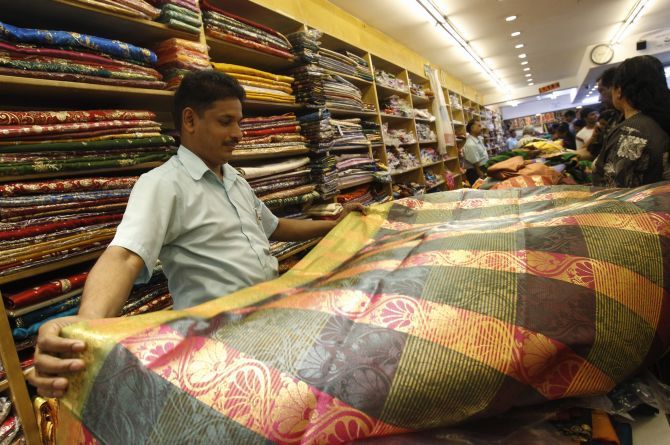Indian companies feel it will be difficult to take on the competition from Bangladesh, Cambodia and others, with their made-in-India products. Ethiopia offers ready-to-use sheds, income tax breaks, training subsidies, and a tax-free gateway into the US, Europe and China. Moreover, labour is available for $60 per month compared to $130-$150 in India.

KPR Mills, one of the major textile mills from Tirupur, Tamil Nadu, has started a unit in Ethiopia to take advantage of lower labour cost, duty savings, and shorter shipment time to the US and European markets.
KPR joins the list of other prominent peers such as Raymond, Arvind, Best Corporation and Jay Jay Mills.
All these companies feel it will be difficult to take on the competition from Bangladesh, Cambodia and others, with their made-in-India products.
So, they hope their Africa investments would bring a new wave of growth.
KPR has invested Rs 25 crore for a capacity of 10 million units; it will provide employment to nearly 1,000.
Raymond has invested around Rs 130 crore in Ethiopia to set up a plant with a capacity of two million jackets, while Best Corporation pumped in Rs 30 crore as Phase-I investment.
SCM Garments, Arvind, Jay Jay Mills are some of the other firms who have set shop in the African nation in the recent years.
The reason? Ethiopia offers ready-to-use sheds, income tax breaks, training subsidies, and a tax-free gateway into the US, Europe and China.
Moreover, labour is available for $60 per month compared to $130-$150 in India - almost 50 per cent lower - said an industry representative.
“Besides the labour cost, another big advantage is that the Ethiopian government already has the land and buildings readily available.
"Power, too, is cheap in Ethiopia. Compared to 10 to 12 cents in India, Ethiopia offers power at three cents. So, it is just a plug and play model,” the representative said.
During the last analyst call, P Nataraj, managing director, KPR Mills said Bangladesh has free trade agreements (FTAs) with major countries, which India does not have.
He said, “The government has been negotiating for the last two-three years with other countries, but such agreements have not yet materialised.
"This is because if these countries sign an FTA with India, they would in turn expect duty reductions for their exports to India as well.”
He further added, “The duty on made-in-India products ranges from 10 to 18 per cent in Europe, which can go up to 28 per cent. However, there is no duty levied on products from Bangladesh. So, in terms cost and price, they have an advantage.”
Now, despite a difference of 10-18 per cent in duty structure, India is still able to compete with such countries because of the abundance in availability of raw cotton.
In case of Bangladesh, they have to depend on outside countries.
“India is the only country where we have surplus cotton. With our technical team and technology, we have a very strong foot on textiles.
"This helps us compete with these countries. Once duty problem is sorted out, there will be a big boom for India,” Nataraj commented.
Nataraj agrees that while incentives and concessions are given in India, getting them implemented takes a long time.
He said, "Another major challenge is labour availability and attrition. Companies have invested a lot of money, but their factories do not run at 50 per cent capacity even after two years of ebing set up."
Photograph: Edgar Su/Reuters











